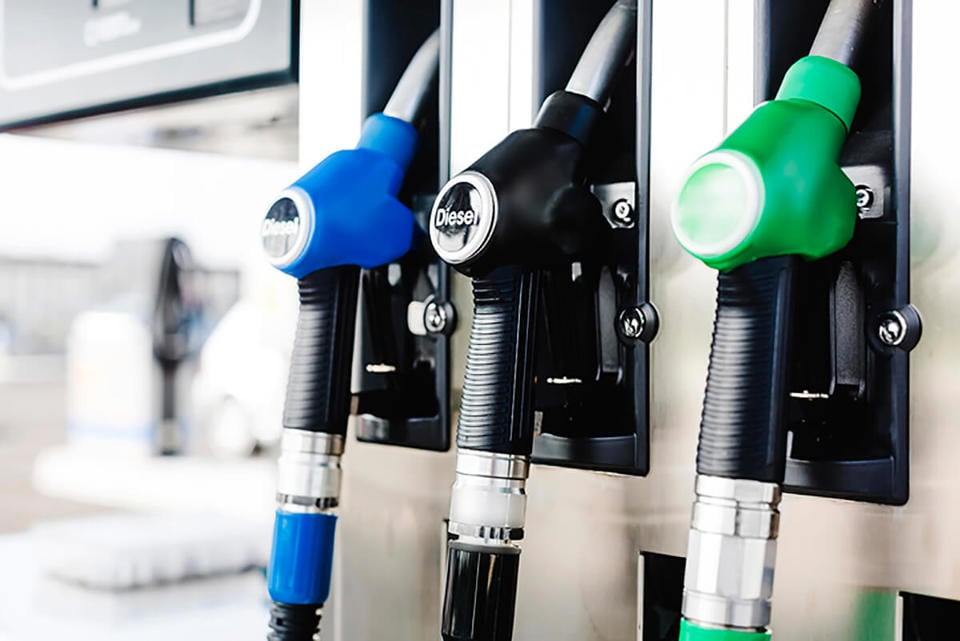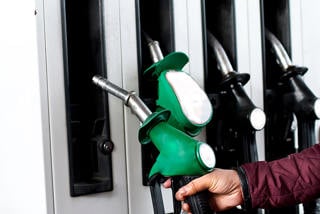UK fuel prices fell by their largest margin in 12 years in March, triggered by a complete collapse in the world oil price, new RAC Fuel Watch data reveals.
Prices could reduce further this month (April), if fuel retailers decide to pass on savings to customers.
The price of a barrel of crude oil began the month above $50, by the end of March it had plummeted by 66% to under $18, its lowest level in 18 years. This was due to a combination of plunging demand in the wake of the coronavirus outbreak and a huge glut in oil, the latter as a result of major oil producing nations being unable to agree a deal on how to cut supply.
The impact on wholesale, and therefore retail forecourt prices was stark. More than 9p came off the average price of unleaded in the month, with prices falling from 122.72p to 113.54p per litre, while the price of diesel was down by nearly 8p, from 125.7p to 117.8p per litre.
These are the largest single month price reductions since October 2008 and mean the price of filling up an average family car with petrol fell by £5.05 during March, and by £4.35 for an equivalent diesel car.
Unlike some months where steady price reductions or increases take place depending on the price of oil, it was the supermarkets announcing price cuts on March 23 that contributed to the overall monthly price drops.
RAC fuel spokesman Simon Williams said: “February was a pretty extraordinary month for fuel price reductions, but nothing prepared anyone for what would happen in March as the impact of the coronavirus began to be felt. An already-oversupplied oil market was suddenly faced with an enormous shortage in demand as worldwide travel ground to a halt.
“Wholesale fuel prices have slid so far that there remains scope for further price cuts, but we are very mindful at this time of the pressure this can place on smaller, independent forecourts that provide a vital service in areas where there is no supermarket footprint. While we all want reasonably priced fuel for our essential journeys, surely none of us want to see smaller enterprises going out of business trying to match the supermarkets’ big price cuts at a time when so few of us are driving compared to normal.
“While the impact of the coronavirus on travel and oil demand continues, there are early signs that the oil price won’t stay as low as it has been in recent days for very much longer. The price war that has been raging between two big oil producing nations, Saudi Arabia and Russia, may be reaching its end if recent statements from the United States are correct – but it is very early days and something we will keep a close eye on.”
Regional fuel price variation
Regional average unleaded pump prices
|
Unleaded |
02/03/2020 |
31/03/2020 |
Change |
|
UK average |
122.72 |
113.54 |
-9.18 |
|
Northern Ireland |
121.01 |
107.30 |
-13.71 |
|
Scotland |
122.45 |
111.42 |
-11.03 |
|
North East |
121.76 |
110.76 |
-11 |
|
Wales |
121.96 |
111.02 |
-10.94 |
|
Yorkshire And The Humber |
122.80 |
111.95 |
-10.85 |
|
South West |
123.52 |
113.03 |
-10.49 |
|
North West |
123.00 |
112.83 |
-10.17 |
|
West Midlands |
123.80 |
113.80 |
-10 |
|
East |
123.92 |
114.09 |
-9.83 |
|
South East |
124.64 |
115.39 |
-9.25 |
|
East Midlands |
123.89 |
115.08 |
-8.81 |
|
London |
124.17 |
115.87 |
-8.3 |
Regional average diesel pump prices
|
Diesel |
02/03/2020 |
31/03/2020 |
Change |
|
UK average |
125.70 |
117.80 |
-7.90 |
|
Northern Ireland |
123.92 |
113.44 |
-10.48 |
|
Wales |
125.44 |
116.23 |
-9.21 |
|
Scotland |
125.97 |
116.77 |
-9.2 |
|
South West |
126.71 |
117.80 |
-8.91 |
|
North East |
124.75 |
115.94 |
-8.81 |
|
North West |
125.83 |
117.13 |
-8.7 |
|
East |
127.06 |
118.39 |
-8.67 |
|
Yorkshire And The Humber |
125.78 |
117.18 |
-8.6 |
|
South East |
127.75 |
119.34 |
-8.41 |
|
East Midlands |
126.76 |
118.39 |
-8.37 |
|
West Midlands |
126.76 |
118.63 |
-8.13 |
|
London |
127.28 |
119.34 |
-7.94 |






















john4870 - 09/04/2020 19:44
Still not accurate - Tesco Boston £102.9 currently!